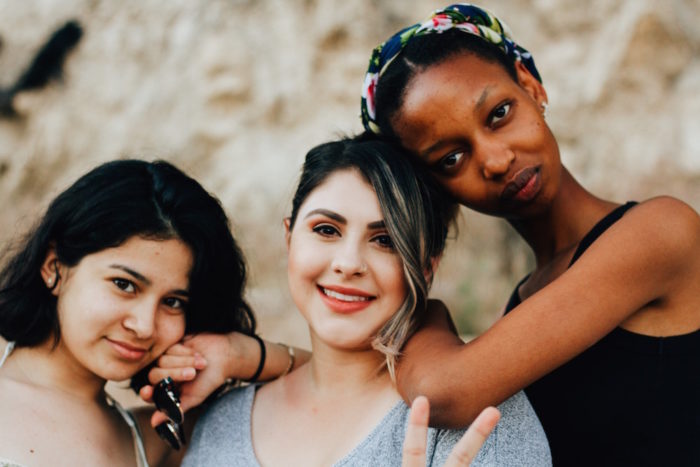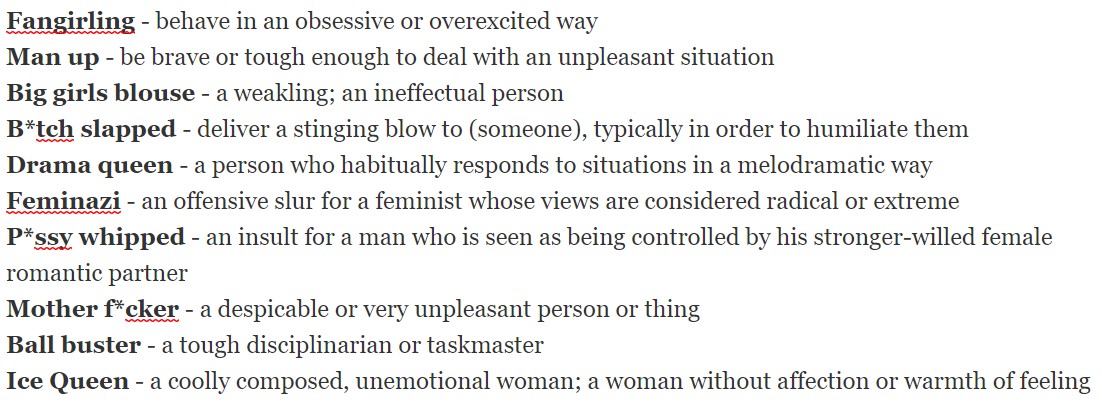 Allow me to first point out that I, until very recently, absolutely use the term girl without thought or issue. It wasn’t until after I had written my previous article on exploring the boundaries of physical contact between yoga teacher and student, that this idea of girl vs woman was even on my radar. It was brought to my attention by a friend and I was immediately curious. We got into many long and insightful discussions about it where I admitted my own reluctance to refer to myself as a woman, and I very quickly began to see the term in a totally different light. While I debated with myself on the matter and consulted others on their views, I very quickly did ctrl+F in my previous article and switched out all the girl and girls for woman and women. The exploration of my own womanhood is and will continue to be an ongoing internal question linked for the most part to self-esteem, but also to social influences, both positive and negative.
Allow me to first point out that I, until very recently, absolutely use the term girl without thought or issue. It wasn’t until after I had written my previous article on exploring the boundaries of physical contact between yoga teacher and student, that this idea of girl vs woman was even on my radar. It was brought to my attention by a friend and I was immediately curious. We got into many long and insightful discussions about it where I admitted my own reluctance to refer to myself as a woman, and I very quickly began to see the term in a totally different light. While I debated with myself on the matter and consulted others on their views, I very quickly did ctrl+F in my previous article and switched out all the girl and girls for woman and women. The exploration of my own womanhood is and will continue to be an ongoing internal question linked for the most part to self-esteem, but also to social influences, both positive and negative.
Along with having a general interest in a particular topic, if I don’t understand something I go out of my way to learn more. Being in the neuro-atypical camp, not knowing or fully understanding things makes my brain itch, a feeling I am always eager to make go away. So taking these comments from my friend on board, I went away and delved into the world of gender-biased language. I really thought what I would find was a bunch of very recent research brought about by more current attitudes towards gender inclusion and adapting our language to move away from typically gender-biased or derogatory language. Nope. ALL. THE. NOPE. This sh*t was old!!! So many studies into these topics were already done and had produced conclusive findings before we hit the new millennium—heck, pretty much before I was even born (I am, by current definition a Millennial, Gen Y).
All right, so let’s get down and dirty. What is so wrong with referring to adult women as girls? First, from a linguistic point of view, we don’t use either girl or lady if we were producing a piece of writing where we would make references to women. Now, I’m not talking the group chat in Whatsapp scenario, I’m talking academic or formal writing. Here, it is defined by the National Council of Teachers of English as gender-biased to use such terms instead of woman/women and in fact, use of lady/girl in these contexts has been found to trivialize and patronize women. Okay, so we’re not all texting in our Whatsapp groups the same way we would if we were doing a piece of academic writing. I hear ya. But hear this…
Language shapes thought and thought changes behavior.
We’ve all heard the phrase ‘fake it till you make it’ which is more than just a quote from a book or movie. A widely used aphorism in the English language, it also comes from embodiment theory, which is based on the premise that if we imitate a certain behavior e.g. confidence or a positive mindset, we will eventually possess those qualities for real. Now it is starting to make sense to me that continuous use of a word will eventually impose on a person the feelings associated with that word. So let’s explore the word in  question; girl. Personally, I have always used the word girl when referring to myself or other adult women and considered it very harmless and in no way derogatory. But since researching this, I came to see that even the basic dictionary definition does not accurately or positively describe adult women. Adding to that is the amount of bad press and negative labeling girls receive on an almost constant basis (think Britney Spears, Miley Cyrus, Lindsay Lohan, all of whom are young women who have had their difficult life events and so called misdemeanors plastered all over the media for the world to judge). In fact, if we think of certain phrases (see below) that I’m sure we all use or have used at some point, we first of all see that they have no male/boy/man alternative and secondly, we realize they are undoubtedly horribly degrading towards women and in some cases are actually adulatory towards men (e.g. man up). Yet I’m sure we have all used them at some point or another without meaning any offense or degradation towards anybody.
question; girl. Personally, I have always used the word girl when referring to myself or other adult women and considered it very harmless and in no way derogatory. But since researching this, I came to see that even the basic dictionary definition does not accurately or positively describe adult women. Adding to that is the amount of bad press and negative labeling girls receive on an almost constant basis (think Britney Spears, Miley Cyrus, Lindsay Lohan, all of whom are young women who have had their difficult life events and so called misdemeanors plastered all over the media for the world to judge). In fact, if we think of certain phrases (see below) that I’m sure we all use or have used at some point, we first of all see that they have no male/boy/man alternative and secondly, we realize they are undoubtedly horribly degrading towards women and in some cases are actually adulatory towards men (e.g. man up). Yet I’m sure we have all used them at some point or another without meaning any offense or degradation towards anybody.
Not all of the phrases are necessarily offensive or derogatory towards women, my point is that none of these phrases have an alternative. For example, try to say the phrases with an opposite gender connotation, e.g. Fangirling>mangirling. No wait…Fanmanning!? Ball buster>boob basher? Cervix crusher? NOPE. NEXT. P*ssy whipped>d*ck strangled? Big girls blouse>Big mans shirt? Or should it be small mans shirt? You get my point. The connotation with all of them is that they imply an inferiority or distaste towards the person they are used against. Bringing us back to language. We continue to use these phrases without question, and as I said earlier—me included. So now we are at the point that many people, men and women, consider these phrases offensive and unacceptable in todays culture and are pushing back against the inherent ‘normalcy’ that we now have as a society to unabashedly throw them around.
So back to girl. When does one transition from girl to womanhood? Is it a physical change? Emotional? A matter of maturity? Well I guess you could say yes to all of the above. But it is not as clear cut as when a boy transitions to manhood. According to the American Psychological Association, use of the word girl is appropriate for high school age and below, so by that logic, as students mostly graduate from high school at 18, that is the age at which we become adults, men and women. So the terms boy and girl are not only defunct after that time, but are also demeaning to those in which it is directed; to refer to a person using language that alludes them as children is not only rude, but simply not cool. It is completely unheard of for adult males to be called boys, in the workplace, in social situations, between friends. ‘That boy at the coffee machine’, ‘the boy who gave the presentation this morning’, ‘the boy who is married to Beyonce’. HECK. NO. To give more of an indicator of just how influential minor changes in our language can be, this behavior study designed to highlight the inaccuracy of eye-witness testimonies, showed that altering our language can modify, change, or supplement our perceptions, in this case, a memory of how a staged car crash went down. And this wasn’t happening over years and decades of language alterations. This was done in a single afternoon.
We really have to change this quick. Our generation can handle it, we grew up with it but we are already part of the change and we hope and strive for a shift, but the longer we continue to use these phrases in this way, the more strength it gives them in their ability to continue to disempower and degrade women. Gender disparity exists, and because of huge media influence, children are learning it and absorbing it at face value much earlier than in previous decades. In 10 years time should we really be comfortable still hearing the phrase ‘feminazi’ directed at a person advocating for women’s rights and gender equality? Or more simply for adult women of any professional or social stature to still be referred to as girls?? I hope that in the future the conversations about gender inequality will be the same as those we will have about eating animals…..as a horrible time in history.
Also by Rose: Yoga Saved Me From Body Dysmorphia But Confidence Is A Process, Not An End
Related: Why Virginity Is A Construct That’s Designed To Shame Female Sexuality
Get more like this—Subscribe to our daily inspirational newsletter for exclusive content!




